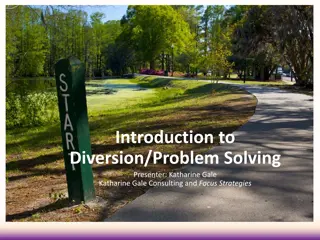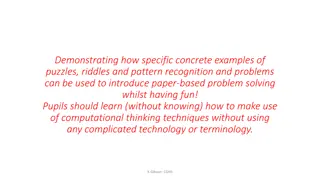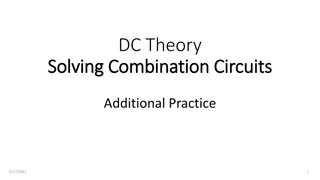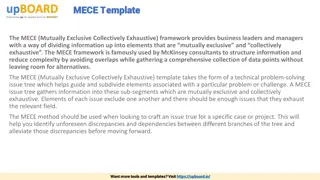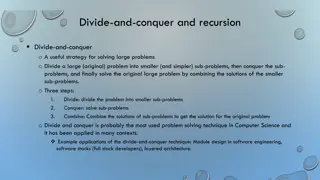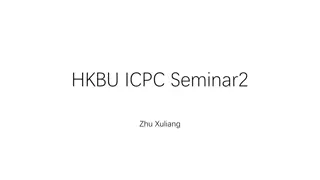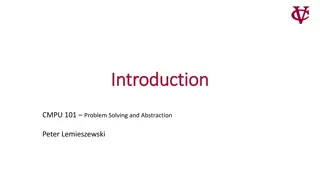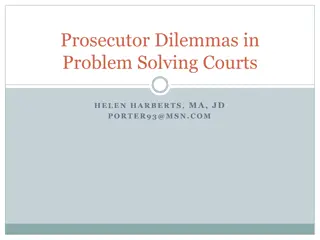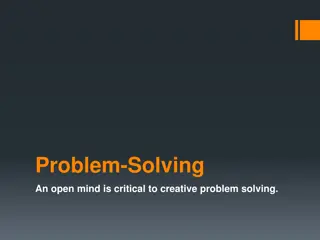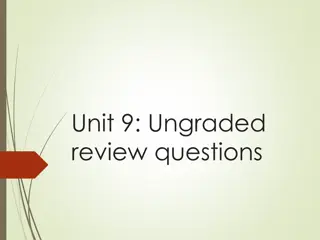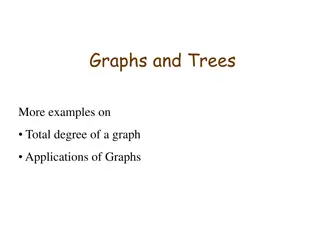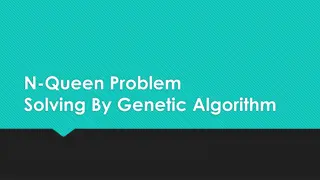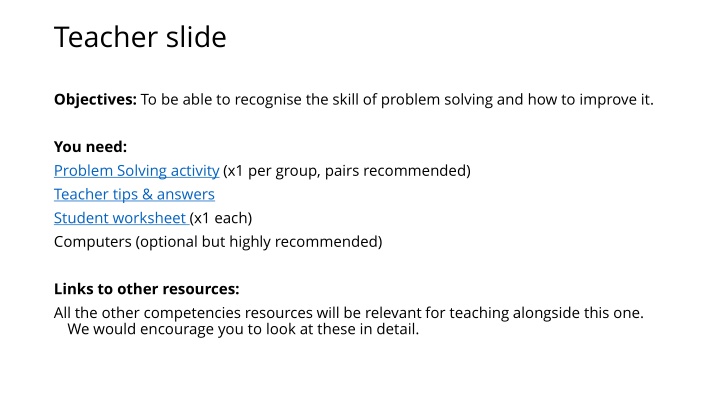
Enhancing Problem-Solving Skills for Success
Develop problem-solving skills through activities, tips, and resources for better career opportunities in today's competitive job market. Empower students with the essential competence sought by employers and universities. Explore the Problem-Solving Process (I.D.E.A.L) and identify additional skills needed at each step for effective problem-solving.
Download Presentation

Please find below an Image/Link to download the presentation.
The content on the website is provided AS IS for your information and personal use only. It may not be sold, licensed, or shared on other websites without obtaining consent from the author. If you encounter any issues during the download, it is possible that the publisher has removed the file from their server.
You are allowed to download the files provided on this website for personal or commercial use, subject to the condition that they are used lawfully. All files are the property of their respective owners.
The content on the website is provided AS IS for your information and personal use only. It may not be sold, licensed, or shared on other websites without obtaining consent from the author.
E N D
Presentation Transcript
Teacher slide Objectives: To be able to recognise the skill of problem solving and how to improve it. You need: Problem Solving activity (x1 per group, pairs recommended) Teacher tips & answers Student worksheet (x1 each) Computers (optional but highly recommended) Links to other resources: All the other competencies resources will be relevant for teaching alongside this one. We would encourage you to look at these in detail.
Unifrog resources Competencies: Problem Solving
Problem solving A key competency employers and Universities favour is problem solving. As problem solving is required in many careers and situations, it is a transferrable skill. Problem solving skills will be needed for: Careers University Apprenticeships Interviews Application forms School Extra curricular activities Social situations The Bloomberg Job Skills Report (2016) found that problem solving is a key skill favoured by employers (from a survey of 1,251 job recruiters at 547 companies). Now more than ever, employers want graduates who are good at problem-solving, It is because Russell Group universities can deliver these essential skills that their graduates continue to be held in high esteem by employers in the UK and internationally. Dr Wendy Piatt, Director of Russell Group
Problem solving in school When have you used problem solving skills in school? Give specific examples. Which subjects do you believe develop problem solving skills? Why?
Problem solving process I D E A L Identifying the problem: Is there just one problem? Does everyone in the team understand what the problem is? (if working in a team) Define your options: Thought shower possible solutions, considering as many options as you can. Examine options: Consider each option and then choose the best option, which the group agrees on. Act: Implement the solution chosen, staying on track and ensuring everyone is taking part (if working in a team). Look back: review if the solution worked. Reflect on why/why not and learn from the experience.
What other skills are needed at each step? I Observation, communication, logical thinking Identifying the problem D E A L Innovative thinking, communication, resilience Define your options Decision making, time management, leadership, analysis Examine options Teamwork, independence, time management Act Analysis, professionalism, communication, reflective thinking Look back
Instructions You will now work in pairs to problem solve. You will try to solve the problem and then analyse the steps that you followed. Who owns the shark? Use the worksheet to find out who owns the shark.
Reflection Use the worksheet to record notes on what you did at each stage of the problem solving process and what skills you used.
Discussion Why is problem solving one of the key skills that employers look for? Why is problem solving one of the key skills that Universities look for? What part of the problem solving process are you confident in? Why? What part of the problem solving process would you like to improve in? Why?
Your competencies Login to the Unifrog platform and record examples of when you have displayed problem solving skills. You might find this structure helpful when writing about your experiences. Situation: Set the scene Task: What was the task? Action: What did you do? Result: What was the outcome?
Your competencies For additional support, see the examples of how to define and write about different competencies. Consider examples from: school, extra curricular activities, volunteering and employment.
Sign in at: unifrog.org/student

